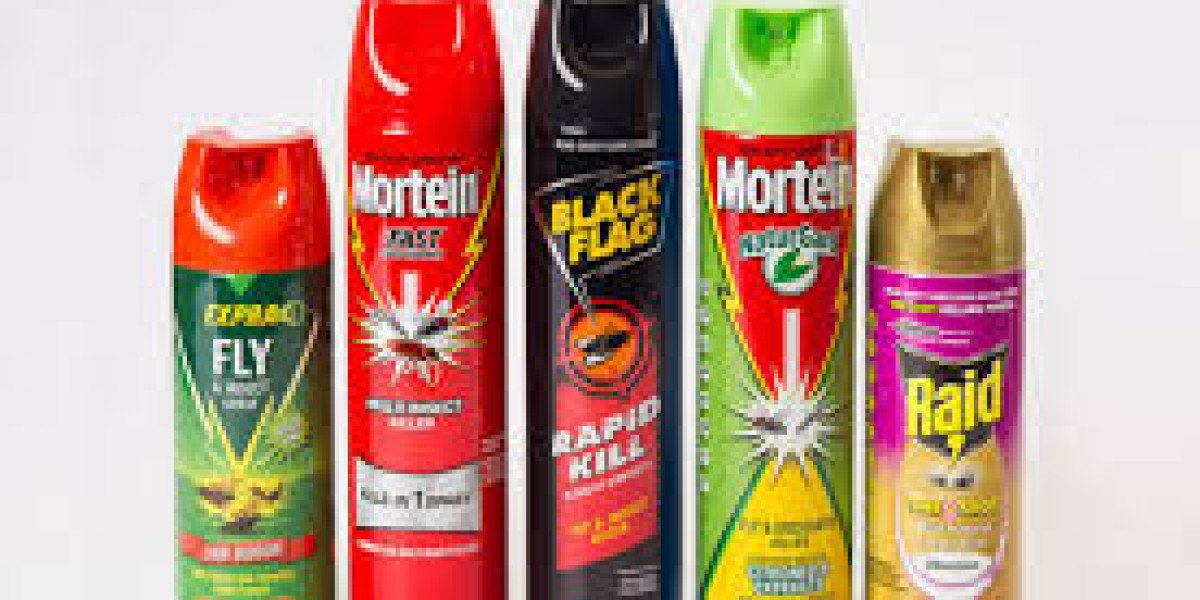Introduction
Keeping your home free from bugs can feel like a never-ending job. Mosquitoes, flies, cockroaches, and ants show up when you least expect them. This is why people use insect spray. It helps control insects, protects your family, and keeps your living space clean. Knowing how it works and how to use it safely can make a big difference.
In this guide, you’ll learn what insect spray is, its benefits, how to use it, common mistakes, and expert tips. Everything is written in easy words so anyone can understand it.
What Is Insect Spray?
Insect spray is a chemical or natural liquid made to kill or repel insects. People use it at home, in offices, and outdoors. It usually comes in a pressurized can or bottle. You spray it in areas where insects hide or enter.
There are different types, such as:
Mosquito spray for flying insects
Cockroach spray for kitchen and bathroom pests
Ant spray for small crawling insects
All-in-one insect spray for general use
Some sprays kill insects immediately. Others create a protective layer that keeps insects away for hours.
Benefits / Importance of Insect Spray
Using insect spray has many benefits. It protects your health, keeps your house clean, and reduces the spread of germs.
1. Helps prevent diseases
Many insects carry harmful diseases. Mosquitoes can spread dengue and malaria. Flies can carry bacteria. A simple spray can reduce these risks.
2. Keeps your home clean
Insects leave dirt, stains, and bad smells. Sprays help reduce these problems quickly.
3. Easy to use
You don’t need special tools. Just point and spray.
4. Fast results
Most insect sprays work within minutes. They kill insects or force them to leave.
5. Affordable and available
You can find insect spray in supermarkets, general stores, and online. Prices are usually budget-friendly.
6. Long-lasting protection
Some sprays keep working for hours, giving you peace of mind even when you’re asleep.
7. Good for indoor and outdoor use
You can use insect spray in bedrooms, kitchens, gardens, and even during picnics.
How Insect Spray Works
To understand insect spray better, it helps to know how it affects insects.
1. Targets the nervous system
Most chemical sprays affect the insect’s nervous system. This makes the insect weak and stops movement.
2. Blocks insects from breathing
Some sprays contain oils that block the breathing holes of insects, causing quick death.
3. Repels insects from entering
Repellent sprays form a layer on surfaces that insects avoid.
4. Breaks the insect life cycle
Some sprays target eggs and larvae, stopping the next generation from growing.
How to Use Insect Spray (Practical Tips)
Using insect spray the right way makes it safe and effective. These steps are easy to follow.
Step 1: Identify the insect
Different insects need different sprays. Always read the label.
Step 2: Keep windows open
Good airflow helps remove any strong smell after spraying.
Also read this blog: home care services
Step 3: Spray from a safe distance
Hold the can upright and spray from about 30–40 cm away.
Step 4: Focus on hiding spots
Spray under beds, behind stoves, under sinks, near garbage bins, and in corners.
Step 5: Leave the room for a few minutes
Let the spray do its job. Most sprays work best when the area is empty.
Step 6: Clean the area after use
Wipe surfaces where food is prepared. Avoid touching sprayed areas until they are dry.
Step 7: Store safely
Keep insect spray away from children and pets.
Tips for Better Results
Use insect spray in the evening when insects are most active.
Remove food before spraying in the kitchen.
Shake the bottle well before use.
Don’t spray directly on the skin unless the product is specifically designed for human use.
Check the expiry date before using.
Common Mistakes / Myths About Insect Spray
Many people use insect spray daily but still make mistakes. Here are the most common ones:
1. “More spray works better”
Using too much is not safe. A small amount in the right spots is enough.
2. “It’s safe to spray near food”
Never spray near food. Chemicals can settle on surfaces and cause health issues.
3. “Insect spray can replace cleaning”
Spray kills insects but doesn’t remove dirt or germs. You still need to clean.
4. “Natural sprays are always safe”
Even natural sprays can be harmful if used incorrectly. Always read instructions.
5. “One spray lasts forever”
Sprays work for a few hours or days. You must repeat the treatment if insects return.
Expert Advice / Stats
Here are some simple facts and expert opinions that add value:
According to public health reports, mosquito-related diseases affect millions every year. Using insect spray reduces mosquito activity by up to 80% in homes.
Experts suggest keeping garbage covered because 70% of household pests are attracted to food waste.
A study found that most insects hide in warm, dark, and damp areas, which means those places need the most attention when spraying.
Pest control experts recommend combining cleanliness + insect spray for the best results.
Using insect spray before bedtime helps reduce bites at night, especially in warm seasons.
Helpful Safety Tips
Always keep the spray away from fire or heat.
Do not spray on pets.
Wash your hands after use.
Avoid breathing the mist directly.
If someone has asthma, keep them out of the room while spraying.
Conclusion
Insect spray is a simple and effective way to protect your home from insects. It helps prevent diseases, keeps your house clean, and makes everyday life more comfortable. When you know how to use it correctly, you get better results and stay safe at the same time.
If you want a cleaner and safer home, start using insect spray the right way. A small step today can keep your family protected all year.







